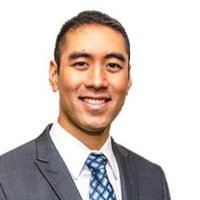WEST ORANGE, NJ, UNITED STATES, September 29, 2022 /EINPresswire.com/ — Residual back pain following a workout routine may seem normal – and it usually is. But should that pain persist, become more intense over time, interrupt sleep, or affect the legs and other areas of the body, “then it is time to see an orthopedic specialist as quickly as possible,” advises interventional pain management specialist Dr. Kaliq Chang with Atlantic Spine Center.“Exercises performed incorrectly, excessively, and without proper preparation or are inappropriate to one’s age and overall conditioning can certainly traumatize spinal discs or the muscles, ligaments, and tendons supporting the spine in ways that go beyond normal sprains and strains. Such injuries oftentimes require professional medical care,” says Dr. Chang.
Of even greater concern is the pain caused by underlying back and spinal issues that are unrelated to exercise. “Oftentimes, the workout is blamed for one’s discomfort, but the true source of the pain is due to an undiagnosed disorder, such as osteoarthritis of the spine; degenerative disc disease; or spinal stenosis, which narrows the spinal canal and compresses nerves. The risk of developing debilitating spinal conditions increases exponentially with age,” Dr. Chang states.
Regular exercise is an essential component of a healthy lifestyle, and muscles that have been stretched, put through repetitive motions, or loaded during a workout can develop temporary soreness – an expected consequence. Indeed, exercise is often prescribed as part of a treatment protocol for relieving a person’s back pain.
Some experts say exercise is a leading cause of back pain, but Dr. Chang says that contention is not necessarily true. “Exercising done properly strengthens core muscles, which support the spine and help prevent injury to it. The trouble occurs when a person neglects to stretch and adequately warm up joints and muscles before and after a workout, uses improper form or technique for specific exercises, overdoes a routine, engages in activities that expose the back and spine to repetitive stressors, or simply fails to exercise regularly, working out only on weekends, for example,” he says.
Research bears out Dr. Chang’s comments. In a 2019 study published online in the Journal of Physical Education and Sport (https://dx.doi.org/10.7752/jpes.2019.s5265), scientists indicate “movement is a very effective medicine if performed in an optimal manner and gives results that are…established over time, [providing] a high quality…of life.” They add that “the best form of prevention against low back pain [are] strong and elastic muscles,” especially those surrounding the spine.
Meanwhile, authors of an article on the www.cure-back-pain.org web site write, “normal exercise activities are virtually never the cause of lasting serious back pain, although they may be contributory or causative for short-lived minor injuries…”
But “acute, sharp back pain that develops suddenly during or immediately after exercise and continues for more than three or four days suggests the possible presence of a workout-associated injury requiring medical attention,” Dr. Chang warns. He also urges exercise enthusiasts not to presume a backache that becomes chronic, persisting for weeks, is simply due to overtaxed muscles.
“Back pain that affects a person’s ability to stand, walk, or lie down; disturbs sleep, or radiates to the buttocks, legs, feet, or arms, causing numbness, tingling, or weakness may be due to other, underlying, and possibly serious conditions. Such pain warrants an immediate call to an orthopedic physician for examination. Delay in seeking proper medical attention can potentially lead to permanent damage of nerves and spinal structures and impact other organs of the body, including the bladder and bowel,” Dr. Chang says.
Statistics indicate approximately eight out of 10 Americans experience back pain at some time in their lives; much of it occurring in the lumbar (lower) spinal region. Medical professionals cite lifestyle issues like obesity, improper posture, unhealthy nutrition, and muscular tension due to physical and psychological stress as causative agents. Other factors include occupational activities requiring excessive repetitive motion or heavy lifting; disc degeneration and other hereditary and age-related conditions affecting the spine; and, yes, inappropriate, and overdone workout regimens.
Of course, not all back pain due to exercise, including sports, is preventable, but Dr. Chang emphasizes that occurrences of workout pain can be controlled and minimized. He offers these prevention tips:
• Avoid activities like full floor-to-knee sit-ups or toe touches from a standing position. These put undue pressure on the back and spine.
• Act your age. Age may be just a number but exercises appropriate for someone in their twenties are not advised for those 60- or 70-something.
• Use appropriate workout techniques. When lifting weights, for example, do not bend over and then put all the pressure on the back muscles and spine as you pull up the load. Squat down and use legs and knees to help lift.
• Find an outdoor or indoor track with a softer surface designed for running. Jogging on hard surfaces like concrete or asphalt may provide good photo opportunities for the news media covering local races and marathons but does little for the spine and other joints.
• Seek advice from an exercise physiologist, physical therapist, or your own physician about types of exercises for strengthening core muscles – those abdominal and back muscles that protect the spine.
• Exercise regularly. Following a sedentary lifestyle on weekdays and saving occasional workouts for weekends only invites muscle trouble and creates the conditions for experiencing an even worse injury.
• Stretch and warm up before a workout and stretch after it. Unprepared muscles are ripe for injury.
Atlantic Spine Center is a nationally recognized leader for endoscopic spine surgery and pain management with several locations in NJ and NYC. www.atlanticspinecenter.com,
Kaliq Chang, MD, is an interventional pain management specialist board-certified in anesthesiology. He is in practice at Atlantic Spine Center.

